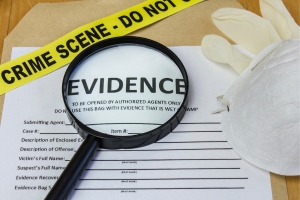The use of forensic evidence is crucial in solving crimes and holding perpetrators accountable. It involves the scientific examination and analysis of physical evidence, such as fingerprints, DNA, and ballistics, to gather pertinent information about a crime.
Typically, private detectives or investigators from detective agencies in Kolkata will collect samples from the crime scene and send them to a forensic laboratory for testing. Forensic scientists will then conduct various tests and analyses to determine whether the evidence can be linked to the crime.
For instance, if a suspect is charged with murder, forensic evidence may include DNA samples taken from the crime scene, such as blood or hair, which can be scrutinized to determine whether they match the suspect’s DNA profile. Ballistic evidence, such as shell casings or bullets, can also be analyzed to verify whether they match the type of weapon used by the suspect.
Once the forensic evidence has been analyzed and processed, it can be presented in court as evidence during a criminal trial. Private detectives or investigators in Kolkata may be called upon to testify about the evidence they collected, how it was analyzed, and provide expert testimony about its significance.
Forensic evidence can be highly persuasive in court as it is based on scientific analysis and can be challenging to refute. However, it is vital to note that forensic evidence is not error-proof, and mistakes can occur during the collection, analysis, and interpretation of evidence. Hence, it is crucial for detectives and investigators to be thorough and meticulous in their work, and for defense attorneys to be able to challenge the validity of forensic evidence in court if required.
In conclusion, forensic evidence is a critical component of the criminal justice system, and it is analyzed by trained professionals from detective agencies and private investigators in Kolkata to gather pertinent information and connect a suspect to a crime. The evidence is then presented in court during a trial to assist in proving the guilt or innocence of a suspect.

